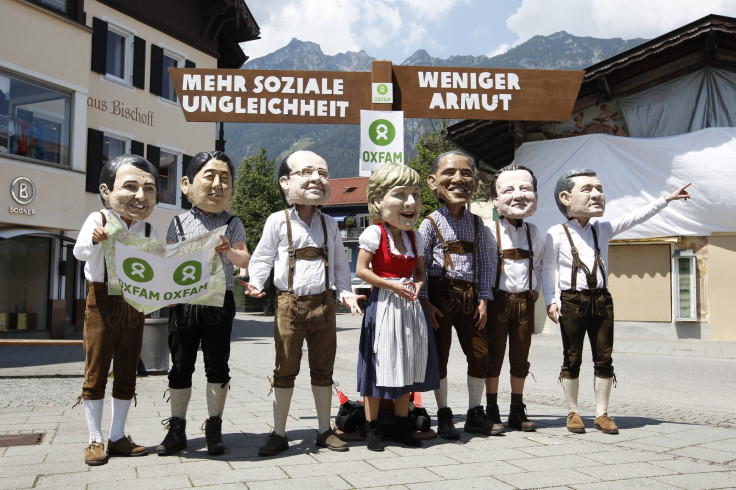IMF Study Says Inequality Is Hurting Growth, Calls For Wealth Redistribution

The International Monetary Fund (IMF) said in a new report that income inequality is harming economies around the world, calling it the “defining challenge of our time.” The Monday study, which was the result of research from five IMF economists, drew attention to the issue of global inequality, dismissed “trickle-down” economics and urged governments to target policies toward the bottom 20 percent of their citizens.
The study surveyed advanced, emerging and developing economies from 1980 to 2012, and found that inequality was exacerbated by technological progress, weakened labor groups, globalization and regressive tax policies.
Weakened labor market laws were found to be associated with a boost in the income of the richest 10 percent.
"Indeed, empirical estimations using more detailed data for Organization for Economic Cooperation and Development countries suggest that ... more lax hiring and firing regulations, lower minimum wages relative to the median wage, and less prevalent collective bargaining and trade unions are associated with higher market inequality,” the study stated.
The report found that an increase in income among the richest and the poorest affects a country’s overall growth in different ways. “If the income share of the top 20% increases, then GDP growth actually declines over the medium term, suggesting that the benefits do not trickle down. In contrast, an increase in the income share of the bottom 20% is associated with higher GDP growth.”
According to the IMF findings, on average, a one percentage point increase in the income share of the richest 20 percent of a country’s population was found to occur with a decrease in GDP by 0.08 percentage points for the following five years. A similar increase for the poorest 20 percent was associated with 0.38 percentage point increase in growth; a slightly lesser increase in GDP was also observed with an increase in income among a country's middle classes.
The report also called on policymakers to design fiscal measures with “greater reliance on wealth and property taxes," in order to benefit the poorer citizens. It recommended removing tax relief on capital gains, stock options and carried interest that favor the wealthy, to "increase equity and allow a growth-enhancing cut in marginal labor income tax rates in some countries."
The study warned that if inequality was not addressed by taking appropriate measures, it could lead to a backlash against economic liberalization and prompt protectionist measures that would eventually hurt the global economy. To prevent this, the economists said, policies should focus on reducing poverty by implementing reforms in health and education, and making taxation policies more progressive.
The latest research echoes previous IMF research that show that redistributive policies have a positive effect on countries’ economic output.
© Copyright IBTimes 2025. All rights reserved.





















